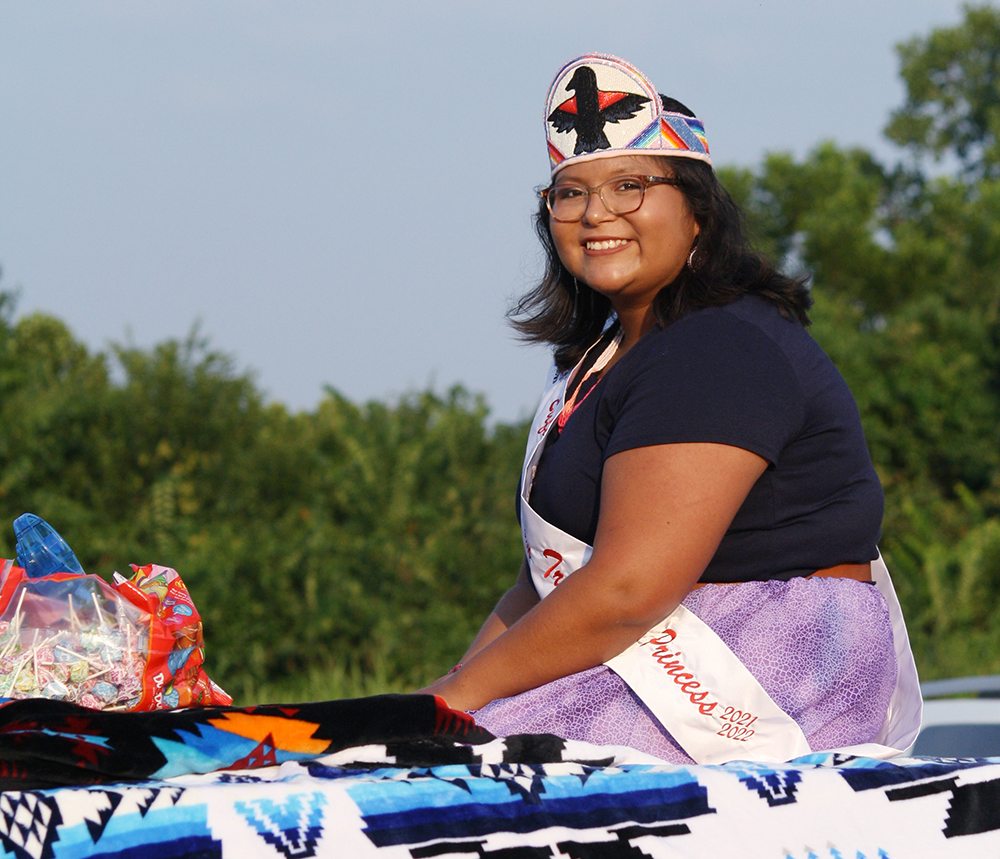
- Details
- By The Leukemia & Lymphoma Society
Teenager Rachel Scott’s story is all about her “blood:” Her proud native heritage, her strong family ties, and… her blood cancer diagnosis.
Rachel is full-blood Chickasaw/Creek/Seminole and lives in Little Axe, Oklahoma, a small, rural community that was established by one of the Absentee Shawnee tribal elders. Her close-knit family includes her parents and both an older and younger brother. As a twelve-year-old, she played basketball, was a cheerleader, and enjoyed time with her family and friends. That all changed one day when she suddenly sat down in the middle of a store aisle and didn’t have the energy to move. After a trip to the Tribal Health Facility, she and her parents were sent to Oklahoma Children’s Hospital for a devastating diagnosis… Rachel had acute lymphoblastic leukemia (ALL), a blood cancer.
Fact: Leukemia and lymphoma account for 39% of all cancers in the 20 years & under-age group.

Throughout, Rachel drew strength from her rich heritage, her community, her deep faith, friends, and family. Finally, after two and a half long years, she was able to ring the bell, signifying remission. She and her family believed the worst was over, but "three years after diagnosis and nine months after ringing the bell,” Rachel shares, "another word was added to my life journey—relapsed!"
Her pediatric oncologist team determined the best approach would be a bone marrow transplant from her older brother. “There’s nothing like the pain of seeing your child suffer,” Rachel’s father remembered. After months of preparation, she had the transplant. And in December of 2023, she will be celebrating 4 years of a successful bone marrow transplant.
Today… hope.
Seven years after her diagnosis, nineteen-year-old Rachel is a traditional cloth dancer and recently completed her reign as the 2022-2023 Miss Indian Oklahoma City. She wants to become a pediatrician and an advocate for children facing cancer. And Rachel is thriving–she’s already started her medical education by shadowing some of her own pediatric oncologists at Children’s Hospital of Oklahoma.
Every blood cancer patient and survivor should not only survive but thrive.
Thanks to groundbreaking research and innovative treatments, many young patients like Rachel can achieve remission. But when blood cancer is diagnosed in an indigenous, underserved, and/or rural community, finding accessible, affordable, quality care and support like Rachel had can be challenging.
Fact: LLS created the Equity in Access Research Program to understand the obstacles in healthcare and address the needs of underserved communities.
As the largest nonprofit organization in the world dedicated to blood cancer, The Leukemia & Lymphoma Society (LLS) provides a wide variety of free information, resources, and personalized support to anybody impacted by blood cancer. We offer the expertise of highly trained oncology social workers and nurses, who can assist patients and their families through treatment, financial, and social challenges. Our Clinical Trial Oncology Nurses will guide patients through the entire clinical trial process. And our registered dietitians will provide oncology nutrition education. Patients can look to LLS for these offerings and so much more.
Since 1949, LLS has been funding lifesaving research and driving advocacy to ensure every blood cancer patient has access to equitable, affordable, quality healthcare—regardless of who they are, what their income may be, and where they live. We’re here to help inform, aid, and support every patient like Rachel—when they need us, when it counts.
Do you or someone you know with blood cancer need help? Contact an Information Specialist at The Leukemia & Lymphoma Society today.
Help us defend tribal sovereignty.
At Native News Online, our mission is rooted in telling the stories that strengthen sovereignty and uplift Indigenous voices — not just at year’s end, but every single day.
Because of your generosity last year, we were able to keep our reporters on the ground in tribal communities, at national gatherings and in the halls of Congress — covering the issues that matter most to Indian Country: sovereignty, culture, education, health and economic opportunity.
That support sustained us through a tough year in 2025. Now, as we look to the year ahead, we need your help right now to ensure warrior journalism remains strong — reporting that defends tribal sovereignty, amplifies Native truth, and holds power accountable.
 The stakes couldn't be higher. Your support keeps Native voices heard, Native stories told and Native sovereignty defended.
The stakes couldn't be higher. Your support keeps Native voices heard, Native stories told and Native sovereignty defended.
Stand with Warrior Journalism today.
Levi Rickert (Potawatomi), Editor & Publisher
